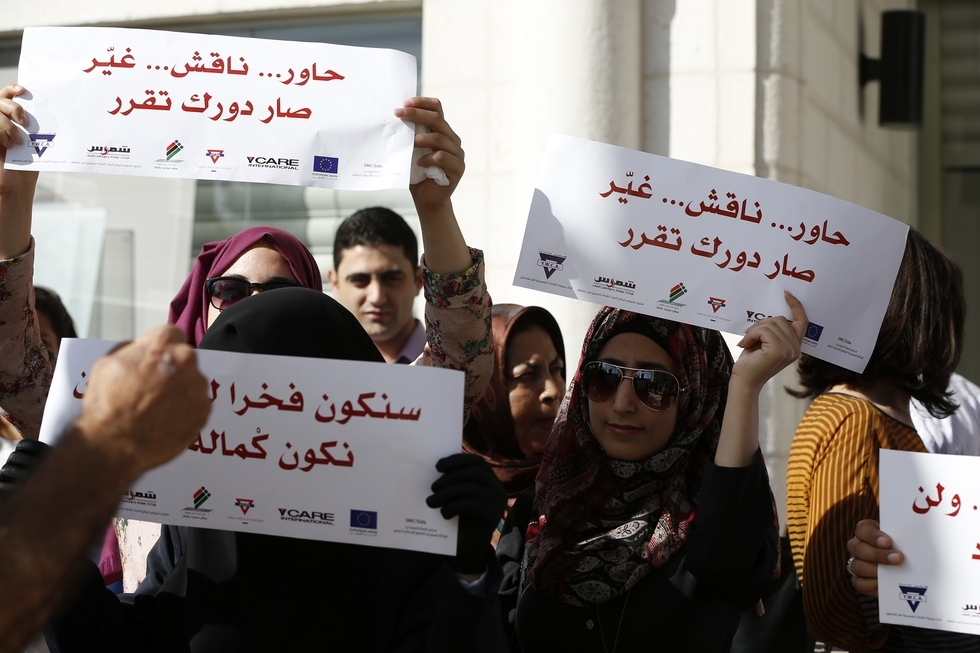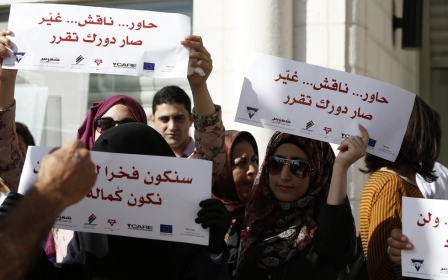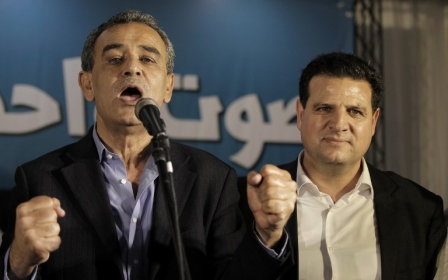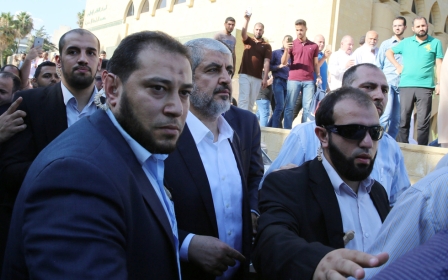Palestinians react to PA’s exclusion of Gaza in upcoming elections

BETHLEHEM, West Bank - Palestinians expressed their dismay on Monday at a Palestinian Authority Supreme Court ruling that excluded the Gaza Strip from the next local elections.
The Hamas movement announced in July it would take part in the first local elections in a decade. Originally slated for October, elections were cancelled in September by the Palestinian Authority (PA) Supreme Court, citing difficulties for Palestinians in occupied East Jerusalem to participate and the arrest of five Fatah members in the Gaza Strip.
Following Monday’s ruling, the Central Elections Commission recommended that Palestinian President Mahmoud Abbas postpone the elections for at least six months, in order to “address the best interest of the Palestinian people”.
No reason was given by the court as to why it ruled Gaza out of the elections, but some Palestinian factions, as well as citizens on social media, said the move was political and aimed to exclude Hamas - the West Bank’s ruling Fatah party’s largest rival - from participating.
Calls for boycott
Mousa Abu Marzouk, a senior member of Hamas in Gaza, said on Monday that the ruling marked the “politicisation of the judiciary system, and the deepening of divisions” between the West Bank and Gaza governments, before calling for a complete boycott of the elections.
The PA’s Deputy Ministry of Interior, Muhammad Dib Mansur, whose office oversees elections, declined to comment on the recent ruling.
Khalida Jarrar, a Palestinian legislative member and senior member of the Popular Front for the Liberation of Palestine (PFLP), told MEE that there is no doubt in her mind that the decision was a political move by the PA against Hamas.
“If things continue like this, it might be difficult for some Palestinian factions to continue this game,” she said, adding that there is a very real possibility that other political parties will choose to boycott the elections if Gaza and occupied East Jerusalem are not included.
“For now this is all still new,” she said. “We are waiting to see what the government will do with this ruling before we say anything concrete. All the democratic factions need to get together and sit down to discuss this.”
The head of the Women’s Union in the West Bank, Ahlam al Wahsh, told MEE that the union would also boycott elections that do not include Gaza.
“This ruling supports the split of the West Bank and Gaza,” al Wahsh said. “This goes against Palestinian values, and furthers the divide between Gaza and the West Bank, Gazans are part of the Palestinian people and it’s a shame that the court is trying to divide that. The Women’s Union won’t take part in this, and my family and friends also said they will not be voting in this corrupt, shameful election.”
Saleh Abu Ayyash, the administrator for the Fatah Youth Movement at Birzeit University, said the movement supports holding elections in both the occupied West Bank and the Gaza Strip, but believed Hamas had made it impossible to hold fair democratic elections in Gaza, since it refused to allow an independent commission oversee voting there.
“After the elections committee originally planned for the elections to be held in October, Hamas and its supporters, under the guise of security, started to arrest Fatah supporters who would have taken part in the elections,” Abu Ayyash said.
“While we support holding democratic elections in Gaza and the West Bank, including East Jerusalem, the current situation in Gaza doesn’t allow us to hold elections [there] because of the actions and reactions of Hamas.”
A September poll by the Palestinian Center for Policy and Survey research found that the court’s first ruling to postpone the elections displeased 61 percent of the Palestinian population, and 60 percent believed that the ruling was politically motivated.
Preserving the status quo
Ido Zelkovitz, senior researcher at the University of Haifa, told MEE that he believed the move actually “served both Fatah and Hamas” because neither group wants to risk giving up power to the other.
“By approving the elections, and giving the Palestinians the opportunity to go to the elections only in the West Bank, and excluding the Gaza strip, we can learn that the inner strife between Hamas and Fatah is getting wider, and this is giving that divide legitimacy,” Zelkovitz said. “Hamas doesn’t want Fatah to be able to run in the Gaza Strip either. Both of them don’t want to solve the inner conflict, but to keep thier own status quo.”
Zelkovitz, who also heads the Middle East studies department at Max Stern Academic College of Emek Yezreel, added that the PA may have reconsidered its original cancelling of the municipal elections due to pressures from the international community.
“Fatah and the Palestinian Authority are more under the pressures of international law and the international community, so they are obligated to play according to the laws of the democratic game. So with this ruling, they found their solution - they are holding a contained elections, with a very high chance to win.”
This article is available in French on Middle East Eye French edition.
New MEE newsletter: Jerusalem Dispatch
Sign up to get the latest insights and analysis on Israel-Palestine, alongside Turkey Unpacked and other MEE newsletters
Middle East Eye delivers independent and unrivalled coverage and analysis of the Middle East, North Africa and beyond. To learn more about republishing this content and the associated fees, please fill out this form. More about MEE can be found here.




